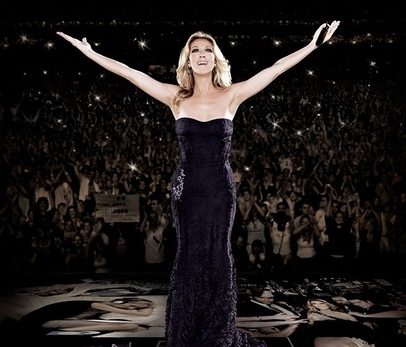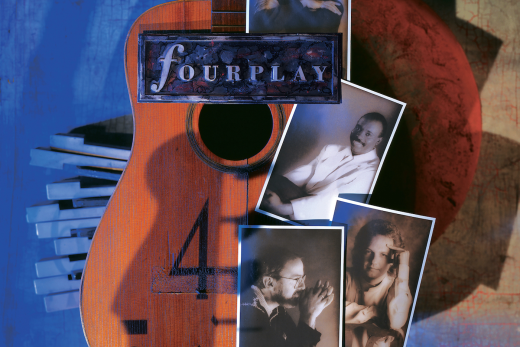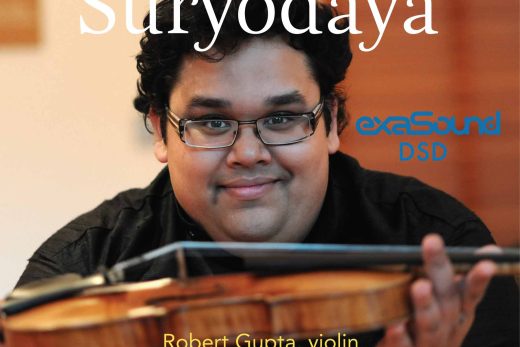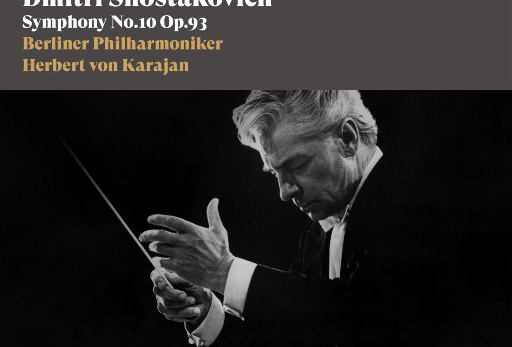Delta Piano Trio – Origin (2022) [24B-44.1kHz]

Quality: 24bit-44.1kHz FLAC (tracks+booklet)
Genre:CLASSICA
Year Of Release:2022
Number:14
Total Time:59:10
Total Size:505 MB
Label:Challenge Classics
一部作品往往犹如一次探索之旅,将某种情感的表达转化为声音。在马丁、曼苏里安和德沃夏克的创作之中,他们为钢琴三重奏组合带来了这三首色彩斑斓的作品。在这里,德尔塔钢琴三重奏便踏上了这一探索之旅,穿越了绚丽的声音世界。
当一位美籍爱尔兰人邀请马丁以爱尔兰民歌作为创作动机时,马丁抓住了这个绝佳的机会,将具有地域特色文化的音乐和节奏相互结合,巧妙地融合在了一起。亚美尼亚作曲家蒂格兰·曼苏里安的作品《5首巴格泰勒舞曲》则赋予了”巴格泰勒舞曲”更深层次的含义:生活中最微小的事情可能拥有最大的意义。每首巴格泰勒舞曲都像是揭示真相的瞬间,晶莹剔透,而又超越了我们的理解。
像许多浪漫主义时期的艺术家一样,捷克作曲家安东宁·德沃夏克让他的音乐充满了丰富的个人特色。他的音乐风格独特,融合了他所钟爱的波希米亚音乐和舞蹈的特色元素以及古典风格。他的代表作如第四钢琴三重奏,该曲取材于”忧思曲”这类史诗般的民谣,描绘了一段悲剧性的历史事件。马丁、曼苏里安和德沃夏克在创作过程中各自展开了探索之旅,德尔塔钢琴三重奏也同样抵达了这三部作品的核心,进行了深度的演绎。
艺术家简介:
德尔塔钢琴三重奏(Delta Piano Trio)是由三位荷兰音乐家杰拉德·斯普龙克(Gerard Spronk)、艾琳·恩兹林(Irene Enzlin)和维拉·库珀(Vera Kooper)在2013年于萨尔茨堡共同创建。他们在萨尔茨堡、巴黎和巴塞尔接受了学习,并曾受教于沃尔夫冈·雷迪克(维也纳钢琴三重奏成员)、莱纳·施密特(哈根四重奏成员)、安东·克恩雅克以及漫游者三重奏等大师。
他们的音乐才华得到了多个国际室内乐比赛的认可,包括立陶宛斯塔西斯·瓦伊尼乌纳斯、意大利萨列里·齐内蒂、荷兰奥兰多和瑞士奥菲斯等比赛的一等奖。尤其是在2020年12月,他们荣获了荷兰最重要的室内乐比赛克尔希斯奖。德尔塔钢琴三重奏的音乐足迹遍布全球,包括欧洲、俄罗斯、以色列、中国、韩国、印度尼西亚和美国等地。他们曾在阿姆斯特丹音乐厅、北京国家大剧院、首尔江东艺术中心、伦敦圣约翰史密斯广场和耶路撒冷音乐中心等著名音乐厅演出。德尔塔钢琴三重奏经常与当代作曲家进行合作,其中包括与美籍俄罗斯作曲家莱拉·奥尔巴赫(Lera Auerbach)的持续合作。此外,他们热衷于举办室内乐大师班,并乐于指导年轻的乐团。
作曲家简介:
瑞士作曲家弗兰克·马丁(Frank Martin)出生并成长在日内瓦的一个胡格诺派家庭,他是查尔斯·马丁(Charles Martin)牧师的最小的一个孩子。九岁时,他就已经创作了几首歌曲,但并未接受过正式的音乐教育。虽然马丁在日内瓦大学遵照父母的意愿学习了两年的数学和物理,但他并未放弃对音乐的热爱。同时,他还跟随他的第一位音乐老师约瑟夫·劳伯学习钢琴、作曲和和声。二十世纪二十年代,马丁与埃米尔·雅克·达尔克罗兹有过密切的合作,并从他那里学到了许多有关节奏和音乐理论的知识。1918年至1926年,他曾在苏黎世、罗马和巴黎生活,这段时间的作品揭示了他寻找属于自己的独特音乐风格的过程。1926年,马丁成立了日内瓦室内乐协会,并在接下来的10年里担任指挥。他同时也是克拉克维奇琴和钢琴的演奏家。此外,他在雅克·达尔克罗兹学院教授音乐理论和即兴演奏,并在日内瓦音乐学院教授室内乐。
提格兰·耶吉艾·曼苏尔扬(Tigran Yeghiayi Mansurian)是亚美尼亚的著名古典音乐和电影配乐作曲家。他曾被授予亚美尼亚苏维埃社会主义共和国人民艺术家以及亚美尼亚苏维埃社会主义共和国荣誉艺术工作者的称号。他的管弦乐、室内乐、合唱和声乐作品在世界各地广为流传。曼苏尔扬出生于黎巴嫩贝鲁特,1947年全家迁至亚美尼亚,1956年在埃里温定居,并在此接受教育。他的音乐学习之旅始于亚美尼亚作曲家爱德华·巴格达萨良的罗曼诺斯·梅利基安音乐学校,随后又在埃里温科米塔斯国立音乐学院深造。在学习期间,他所创作的作品获得了部分奖项。在1967年至1986年期间,曼苏尔扬于音乐学院教授现代音乐理论,1992年至1995年担任音乐学院院长。他的专辑 “Monodia” 在2004年格莱美奖上获得了 “最佳器乐独奏”和 “最佳当代古典音乐作品”的提名。而在2017年的第60届格莱美奖上,该专辑又获得了 “最佳当代古典作曲”和 “最佳合唱表演”的提名。
Quite often, a work becomes a journey of discovery towards a certain origin, translated into sound. Martin, Mansurian and Dvořák composed three such colourful works for piano trio – voyages of discovery taken here by the Delta Piano Trio through scintillating sound worlds. When an Irish-American benefactor asked him to write a work based on Irish folk songs, Martin grasped this as an exquisite opportunity to combine two of the quests occupying him at the time – music from distant cultures and rhythm. His Trio sur des mélodies populaires irlandaises (1925) is a complex, mature and multi-layered score.
The Armenian composer Tigran Mansurian (born 1939) gives the term a deeper meaning with the idea behind his 5 Bagatelles (1985): the smallest things can have the greatest significance in life. Each bagatelle sounds like a moment when truth opens up; crystal clear while at the same time beyond our comprehension.
Like many artists of the Romantic era, Czech composer Antonín Dvořák (1841-1904) let his music flourish from his deepest roots, his origins. His unique style represents a melting-pot of all sorts of characteristic elements of music and dance from his beloved Bohemia with the classical idiom. An example is the famous Piano Trio No. 4 (1891), based on the “dumky”, epic folk ballads depicting a tragic historic event. In much the same way that Martin, Mansurian and Dvořák each made their own voyages of discovery in their compositions, the Delta Piano Trio has also reached the heart of these three works.
1. Martin: Trio sur des mélodies populaires irlandaises: Allegro moderato (4:46)
2. Martin: Trio sur des mélodies populaires irlandaises: Adagio (5:30)
3. Martin: Trio sur des mélodies populaires irlandaises: Gigue (5:12)
4. Mansurian: Five Bagatelles, for violin, cello, and piano: Largo (2:36)
5. Mansurian: Five Bagatelles, for violin, cello, and piano: Moderato (3:55)
6. Mansurian: Five Bagatelles, for violin, cello, and piano: Allegro I (2:45)
7. Mansurian: Five Bagatelles, for violin, cello, and piano: Allegro II (3:23)
8. Mansurian: Five Bagatelles, for violin, cello, and piano: Moderato II (1:42)
9. Dvořák: Pianotrio No. 4 in E Minor, Op. 90, B. 166 “Dumky”: Lento maestoso – Allegro quasi doppio movimento (3:46)
10. Dvořák: Pianotrio No. 4 in E Minor, Op. 90, B. 166 “Dumky”: Poco adagio – Vivace non troppo – Vivace (6:16)
11. Dvořák: Pianotrio No. 4 in E Minor, Op. 90, B. 166 “Dumky”: Andante – Vivace non troppo – Allegretto (6:07)
12. Dvořák: Pianotrio No. 4 in E Minor, Op. 90, B. 166 “Dumky”: Andante moderato – Allegretto scherzando – Quasi tempo di marcia (4:48)
13. Dvořák: Pianotrio No. 4 in E Minor, Op. 90, B. 166 “Dumky”: Allegro (3:57)
14. Dvořák: Pianotrio No. 4 in E Minor, Op. 90, B. 166 “Dumky”: Lento maestoso (4:35)
https://pan.intooo.com/s/gx0HR
神秘代码使用方法,关注右侧微信号回复“神秘代码”。
或前往兔圈https://q.intooo.com/。
如果存在资源缺失的情况,前往兔圈反馈。https://q.intooo.com/d/4/24
Call for corresponding copyright protection
This site only provides a brief introduction to music and some of their own understanding of music
Music download service and connection are not provided. Copyright is respected. Please go to the official website for download
If the above Music profile or album cover picture infringes your rights and interests
You can contact me to delete it now 992344649@qq.com





